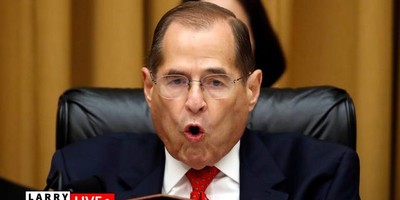It has already become a cliche on the right to tut-tut at U.S. Senate candidate Rand Paul's "rookie" mistake of trying to conduct a "libertarian seminar" during the campaign.
I'm not so sure. For starters, if you're not invested in Paul's political career, why not seize this rare opportunity for one of those eternally sought but never achieved "national conversations" on race?
Besides, Paul's not going to lose because of his reservations about some aspects of the 1964 Civil Rights Act. He's from Kentucky, a very red state. And contrary to what you might suspect from reading the national media, not only has he not made repealing the law the centerpiece of his campaign, he has no desire to do so if elected.

Indeed, it's worth noting that the only people who are really jazzed to reopen the argument about the Civil Rights Act are liberals.
And they have good reason: They won that argument, politically and morally. This is a fact liberals never stop reminding us, and themselves, about. Like a paunchy middle-aged man who scored the winning touchdown in the high school championship, nostalgic liberals don't need an excuse to bring up their glory days (which were not the Democratic Party's glory days, by the way). Give them a living, breathing politician who suggests, no matter how imprecisely or grudgingly, that the Civil Rights Act wasn't perfect, and they'll talk your ear off like a drunk uncle at a wedding.
How many activist groups insist that their plight is sublimely analogous to the civil rights struggle? How many times did the Democrats try to make health-care reform a continuation of civil rights? "When this body was on the verge of guaranteeing equal civil rights to everyone regardless of the color of their skin," Senate Majority Leader Harry Reid (D-Nev.) intoned as he tried to ram health-care reform through, "some senators resorted to the same filibuster threats that we hear today."
Recommended
What really makes this debate remarkable is that someone has volunteered to be the straw man liberals are always creating.
It's also proof that conservatives just can't win. During the Bush years, liberals elevated libertarianism as the "good" right-wing ideology, sanctifying Barry Goldwater as the betrayed founding father of a more noble anti-statist tradition than the one presided over by the crazed apostate George W. Bush (whose racial views happened to be more benign than Goldwater's).
For instance, Robert F. Kennedy Jr. wrote an afterword to Goldwater's "Conscience of a Conservative" lionizing the late Arizona senator as the sort of honorable conservative all liberals respect. Goldwater's granddaughter produced a documentary in which Hillary Rodham Clinton, James Carville and other liberals sang AuH20's praises.
And yet, when a very clearly nonracist libertarian politician merely raises the possibility -- with admirable honesty and sincerity -- that Goldwater might have been a teensy-weensy bit right to vote against the 1964 bill (Goldwater had voted consistently for civil rights laws before then), it's an outrage.
For the record, Paul and Goldwater were both wrong. The libertarian position is not to defend Jim Crow but to condemn it, and not just because of its unjust bigotry but because of its economic folly that served to entrench that bigotry.
Paul weeps for the lost right of white businessmen to refuse black customers (even though he rejects the practice himself). But he fails to appreciate the perverse irony that one of Jim Crow's greatest evils was its intrusion on the property rights of whites. Jim Crow wasn't merely some "Southern tradition" undone by heroic good government. Jim Crow laws were imposed by government. And they banned white businessmen from serving blacks (Plessy vs. Ferguson, which enshrined "separate but equal" in the Constitution for another six decades, was largely about how blacks could be treated on railroads).
Liberals often deride the libertarian notion that the free market could have solved segregation. I think libertarians have a pretty good argument in theory, but the simple truth is we'll never know because the market wasn't free under Jim Crow. Nonetheless, it's certainly repugnant and bizarre for libertarians like Paul to lament the lost rights of bigots rather than to rejoice at the restored rights of integrationists.

























Join the conversation as a VIP Member